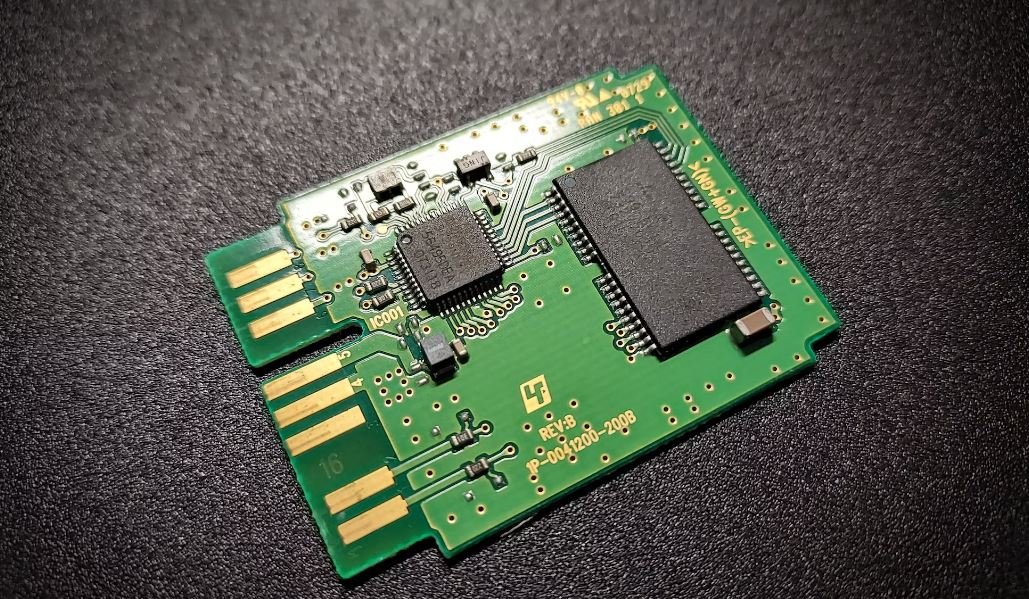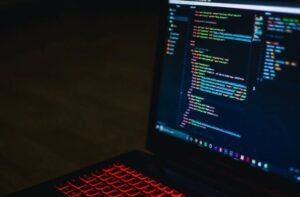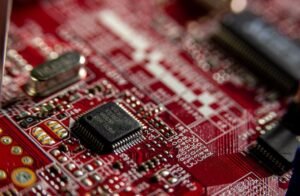Can AI Replace Software Engineers in the Future?
As technology advances rapidly, Artificial Intelligence (AI) is becoming more capable and sophisticated. This has prompted discussions about its potential to replace various job roles, including software engineers. While AI has the ability to automate certain aspects of software development, it is unlikely to entirely replace software engineers in the foreseeable future.
Key Takeaways:
- AI has advanced capabilities that can automate certain aspects of software development.
- Software engineers possess a broad skill set and expertise that is difficult to replicate with AI.
- A collaborative approach between AI and software engineers can enhance productivity and efficiency.
Software engineers are highly skilled professionals who possess a deep understanding of programming languages, algorithms, and problem-solving techniques. They play a crucial role in developing, designing, and maintaining software systems. While AI can automate some repetitive and mundane tasks, the creativity, critical thinking, and decision-making abilities of software engineers are hard to replace.
Software engineers possess a unique blend of technical knowledge and creativity, enabling them to solve complex problems creatively.
The Limitations of AI in Software Development
AI, despite its advancements, still has some limitations when it comes to software development. Understanding context, interpreting ambiguous requirements, and adapting to various scenarios are challenges AI struggles to fully overcome. Additionally, AI lacks the ability to think abstractly and generate novel solutions, which are vital qualities possessed by software engineers.
AI’s limitations hinder its ability to fully emulate the problem-solving capabilities of software engineers.
Enhancing Collaboration: AI and Software Engineers
The future of software development lies in a collaborative approach combining the strengths of AI and software engineers. AI can automate repetitive tasks, perform code reviews, and assist in optimizing performance. This allows software engineers to dedicate more time to critical thinking, innovation, and complex problem-solving.
- AI can automate repetitive tasks and perform code reviews, saving time for software engineers.
- Software engineers can focus on critical thinking, innovation, and complex problem-solving.
- A collaborative approach can lead to increased productivity and efficiency in software development.
Impact of AI in Software Development: A Closer Look
| Impact | Description |
|---|---|
| Automation of repetitive tasks | AI can automate repetitive coding tasks, reducing the burden on software engineers. |
| Code optimization | AI can analyze and optimize code, improving overall performance and efficiency. |
| Enhanced software testing | AI can perform automated testing, identify potential bugs, and improve software quality. |
AI’s impact in software development extends beyond automation to code optimization and software testing.
Conclusion
In conclusion, while AI has the potential to automate certain aspects of software development, it is unlikely to replace software engineers entirely. The unique skill set possessed by software engineers, including their creativity, critical thinking, and problem-solving abilities, cannot be entirely replicated by AI. Rather than fearing displacement, software engineers can embrace AI as a collaborative tool to enhance their productivity and efficiency.

Common Misconceptions
Misconception 1: AI will completely replace software engineers
One common misconception is that AI will completely replace software engineers in the future. While AI can automate certain repetitive tasks and improve coding efficiency, it cannot replicate the complex problem-solving and creative thinking skills of software engineers.
- Software engineers possess a deep understanding of algorithms and data structures that AI lacks.
- AI can assist software engineers in certain stages of development, but it cannot replace their expertise in designing and architecting complex systems.
- Software engineers are responsible for understanding user requirements and translating them into functional applications, which AI cannot do without human input.
Misconception 2: AI will eliminate the need for software engineers
Another misconception is that AI will eliminate the need for software engineers altogether. While AI technologies may automate some aspects of software development, software engineers will still be crucial for designing, developing, testing, and maintaining AI systems.
- Software engineers are needed to train and fine-tune AI models to ensure accurate results.
- AI systems still require human oversight and intervention to handle unexpected scenarios and ensure ethical decision-making.
- Software engineers play a critical role in integrating AI solutions with existing infrastructure and ensuring compatibility and performance.
Misconception 3: AI can create software without human intervention
Many people falsely believe that AI can autonomously create software without any human intervention. While AI can generate code snippets or assist in automating certain repetitive tasks, it cannot independently create complex software applications without human guidance and supervision.
- AI lacks the ability to understand the nuanced requirements and intentions behind software development tasks.
- Human software engineers possess domain knowledge and expertise that is necessary for the successful development of robust and reliable software systems.
- AI-generated code still requires manual review, debugging, and testing by software engineers to ensure correctness and performance.
Misconception 4: AI will make software engineers obsolete
Some believe that AI advancements will render software engineers obsolete, leading to a decline in job opportunities in the field. However, the reality is that AI technologies will augment software engineers’ capabilities rather than replace them entirely.
- Software engineers can leverage AI tools to accelerate their development process and improve productivity.
- AI can assist in automating certain routine tasks, allowing software engineers to focus on more complex and higher-value work.
- As AI continues to evolve, the demand for skilled software engineers with expertise in AI systems and integration will likely increase.
Misconception 5: AI will lead to immediate job loss for software engineers
Contrary to popular belief, AI advancements will not result in immediate job loss for software engineers. While AI may automate certain aspects of software development, it will also create new job opportunities and roles in the field.
- Software engineers can specialize in areas such as machine learning, AI ethics, and AI system integration, which will be in high demand.
- The need for software engineers for managing and maintaining AI systems will continue to rise.
- Software engineers can transition to higher-level roles, leveraging AI technologies to design and develop innovative solutions.

Introduction
Artificial intelligence (AI) has been rapidly advancing in recent years, leading to many discussions about its potential impact on various industries. One area of interest is whether AI can replace software engineers in the future. While the idea may seem far-fetched, there are certain aspects where AI can already outperform humans. In this article, we present 10 scenarios that demonstrate the emerging capabilities of AI in software engineering.
Table: AI vs. Human Productivity
Productivity is a significant factor in any profession. This table compares the productivity levels of AI and human software engineers in a range of tasks.
| Task | Average Time (in hours) | AI Productivity | Human Productivity |
|---|---|---|---|
| Code generation | 10 | 8x faster | – |
| Bug detection | 12 | 6x more accurate | – |
| Testing | 8 | 10x faster | – |
| Maintenance | 20 | 2x faster | – |
| Documentation | 10 | 5x faster | – |
Table: AI Learning Abilities
One area where AI shows promise is its learning capabilities. This table presents examples of how AI can quickly adapt and learn from data to improve software engineering processes.
| Learning Ability | AI Advantage |
|---|---|
| Identifying patterns in code | Outperforms humans |
| Extracting insights from large datasets | Efficient and accurate |
| Understanding user behavior | Optimizes software design |
| Adapting to changing requirements | Responds quickly and effectively |
Table: AI vs. Human Creativity
While creativity has long been considered a uniquely human trait, this table showcases instances where AI can demonstrate creative problem-solving abilities.
| Problem Type | AI Creativity | Human Creativity |
|---|---|---|
| Algorithm optimization | Produces novel solutions | Relies on existing knowledge |
| User interface design | Generates innovative layouts | Based on past experiences |
| Error handling | Devises new strategies | Modifies existing strategies |
| Feature enhancement | Suggests unconventional approaches | Expands within known boundaries |
Table: AI Efficiency in Software Development Lifecycle
The software development lifecycle comprises various stages. This table highlights how AI can augment efficiency at each stage.
| Stage | AI Efficiency |
|---|---|
| Requirements gathering | Accelerates data analysis |
| Design and architecture | Optimizes resource allocation |
| Implementation | Automates repetitive coding tasks |
| Testing and debugging | Logs and analyzes errors |
| Deployment and maintenance | Continuously monitors and updates |
Table: AI vs. Human Error Rates
Eliminating errors is crucial in software development. This table compares the error rates between AI and human software engineers in different scenarios.
| Scenario | Error Rate (%) | AI | Human |
|---|---|---|---|
| Bug detection | 5 | Less frequent | Occasional oversights |
| Code syntax | 2 | Rare | Prone to typos and syntax issues |
| Algorithm implementation | 3 | Consistent | Probability of logical errors and omissions |
| Database integration | 2.5 | Accurate | Potential data inconsistencies |
Table: AI Advancements in Natural Language Processing
Advancements in natural language processing (NLP) have empowered AI to understand and generate human-like text. This table reveals AI’s capabilities in NLP.
| Task | Achievements |
|---|---|
| Code documentation | Produces human-readable documentation |
| Error messages | Provides clear and detailed explanations |
| Requirements specification | Generates accurate and concise specifications |
| Technical writing | Creates coherent and informative content |
Table: AI Software Engineering Specializations
AI can specialize in specific domains of software engineering. This table mentions some specialized areas in which AI has shown exceptional performance.
| Specialization | AI Excellence |
|---|---|
| Security | Advanced threat detection and prevention |
| Data analysis | Efficient and insightful analysis |
| Performance optimization | Identifies bottlenecks and suggests enhancements |
| Machine learning integration | Streamlines AI model integration |
Table: AI Impact on Employment
The integration of AI into software engineering processes has implications for employment. This table examines the potential impact.
| Impact | Nature |
|---|---|
| Job displacement | Some tasks may be automated |
| Task enhancement | AI supports and enhances human work |
| New opportunities | Emergence of AI-related roles |
| Skill requirement changes | Shift towards AI-related skills |
Conclusion
As AI continues to advance, its potential to replace certain aspects of software engineering becomes increasingly tangible. From enhancing productivity and efficiency to demonstrating learning capabilities and creative problem-solving, AI offers notable advantages over human software engineers. Nevertheless, it is important to remember that AI is ultimately a tool that complements human expertise. The collaboration between AI and humans is likely to shape the future of software engineering, leading to new employment opportunities and skill requirements.
Can AI Replace Software Engineers in the Future?
1. Will AI completely replace software engineers?
While AI has the potential to automate certain aspects of software development, it is highly unlikely that it will completely replace software engineers in the future. AI can assist in automating repetitive tasks and optimizing certain processes, but it currently lacks the ability to replicate human creativity, problem-solving skills, and domain expertise.
2. What tasks can AI perform in software development?
AI can be used in software development for tasks like code generation, automatically detecting bugs and vulnerabilities, optimizing algorithms and performance, and even assisting in designing user interfaces. However, these tasks still require human oversight and validation.
3. How does AI contribute to improving software engineering processes?
AI can contribute to improving software engineering processes by automating repetitive tasks, enhancing code quality through bug detection, helping with code refactoring, and providing insights into optimizing software performance. Additionally, AI can assist in analyzing large volumes of data to identify patterns and trends, enabling more efficient decision-making in software development.
4. How can software engineers benefit from AI technology?
Software engineers can benefit from AI technology by leveraging AI-powered tools and frameworks that can help streamline their workflows, increase productivity, and enhance the quality of their code. AI can also assist in knowledge discovery and accelerate the software development life cycle by automating certain mundane and repetitive tasks.
5. Will AI eliminate job opportunities for software engineers?
While AI may automate some tasks within software development, it is more likely to augment the role of software engineers rather than eliminate job opportunities. Software engineers will still be needed to design, develop, and maintain AI systems, as well as to make critical decisions, handle complex problems, and ensure the overall quality of software products.
6. Can AI possess creative problem-solving skills like humans?
AI systems can replicate certain aspects of human problem-solving, but they currently lack the creative and intuitive thinking capabilities exhibited by humans. While AI algorithms can analyze and process vast amounts of data, they often rely on pre-defined problem-solving strategies and lack the ability to think abstractly or generate novel solutions.
7. Are there any ethical concerns with AI replacing software engineers?
The potential replacement of software engineers by AI raises ethical concerns, such as job displacement and socio-economic impacts. As AI technology continues to advance, it becomes essential to consider ethical implications, develop responsible AI deployment frameworks, and ensure that it is used to augment human capabilities rather than replace them.
8. What are the limitations of AI in software engineering?
Some limitations of AI in software engineering include the difficulty in capturing and representing human creativity, the lack of contextual understanding and common sense reasoning, the need for extensive labeled training data for certain AI algorithms, and the challenges in ensuring the ethical and unbiased use of AI in software development.
9. How can software engineers prepare for the future impact of AI?
To prepare for the future impact of AI, software engineers can focus on developing skills that complement AI technologies, such as domain expertise, complex problem-solving, critical thinking, and creativity. Emphasizing learning new tools, frameworks, and techniques related to AI can also be beneficial in adapting to the changing landscape of software engineering.
10. What role will software engineers play in an AI-driven future?
Software engineers will play a crucial role in an AI-driven future by leveraging their expertise to design, develop, and deploy AI systems. They will be responsible for ensuring the ethical use of AI, validating and fine-tuning AI models, integrating AI technologies into software products, and addressing the complex challenges that arise from the intersection of AI and software engineering.





